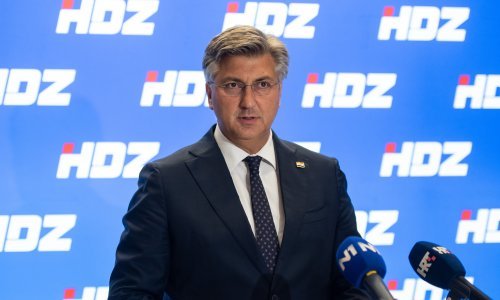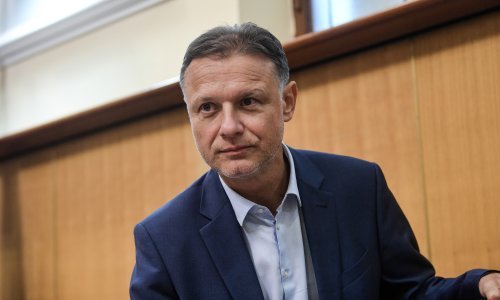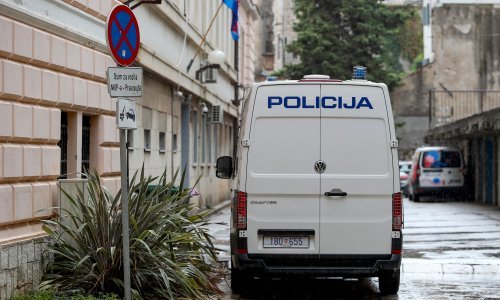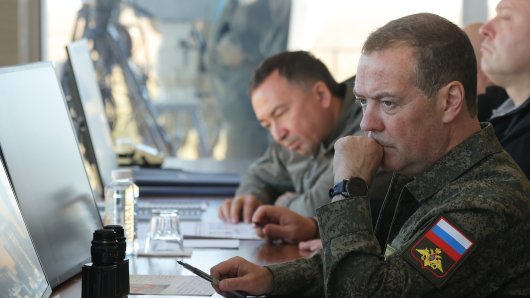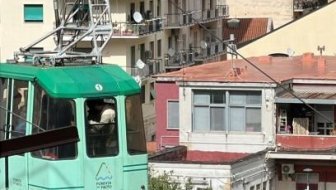The World Bank is willing to financially and technically assist in the implementation of Croatia's economic recovery programme, the Bank's director for Europe and Baltic countries, Peter Harrold, said on Monday.
We paid a lot of importance to the programme when it was revealed in April. It's a brave programme which outlines the reforms the government wants to carry out and creates a framework for a sustainable way out of the recession, Harrold said in Washington over the weekend at a meeting of the International Monetary Fund and the World Bank.
The Bank is willing to extend financial assistance as well as technical and analytical support for the programme, said Harrold.
We told Finance Minister Ivan Suker that we are willing to give financial support if you are serious about implementing the programme, as reform implementation has its price and consequences, he said, stressing that the focus was entirely on programme implementation.
Asked to assess the Croatian government's fiscal and monetary policy in the current crisis, Harrols said Croatia realised that its fiscal policy was not sustainable in the middle term owing to the excessive deficit.
The World Bank estimates that Croatia's budget deficit in 2010 could rise to 5.4 per cent of gross domestic product and the public debt, which was EUR 45.6 billion in 2009, to more than 52 per cent of GDP.
The public sector's debt is no particular cause for concern, but the total debt is. They are aware of the debt amount and what they should do is control the public debt of the government and public companies so the deficit can be reduced, Harrold told Hina.
He said the World Bank trusted what the Croatian National Bank was doing, because it oversaw the development of the banking sector very well and saw to it that bank reserves remained at an appropriate level and that banks were not too exposed.
Asked about the Croatian government's unwillingness to enter a stand-by arrangement with the IMF so that the country could overcome the crisis, Harrold said that was an entirely sovereign decision that mostly depended on the market, namely if a country could access funds on the market at a reasonable price.
Harrold said many countries in the region had no other option, but also that many did not ask for the IMF's help, such as Slovenia, which was in an equally difficult situation as Croatia, or the Czech Republic, Slovakia, Estonia, and Lithuania.
An arrangement with the IMF does not mean that you will surface, as seen with Romania, which has the biggest programme with the IMF, he said.
The World Bank estimates that the Romanian and Croatian economies will contract two per cent this year.
Asked if accession to the European Union would finally stop Croatia from the current economic decline, Harrold said the EU was not the solution to all problems but that it would bring many prospects to Croatia, such as more than EUR 3 billion that could be used only if the country was fully prepared and reformed.
Asked why Croatia remained one of the few countries in the region still in a recession, Harrold said the fact that services dominated the economy, accounting for about 70 per cent of GDP and focusing on tourism, meant that Croatia entered into the recession more slowly and was recovering more slowly.
He added, however, that he was optimistic about the economic growth in 2011, which the World Bank forecasts at 1.5 per cent.
Speaking of the importance of fully implementing reforms before EU accession, in order to absorb the funds envisaged for new members, Harrold said Croatia could not afford the luxury of delaying reforms because of next year's elections.
He approved the prosecution of corruption in Croatia, saying very sensitive investigations were being led, whereas in many countries for which he was in charge nothing was being done.
So far, the World Bank has supported 45 operations in Croatia worth about $3 billion, approving 52 loans totalling about $70 million. Currently, the Bank is engaged in 15 projects in Croatia totalling about $1.1 billion.






